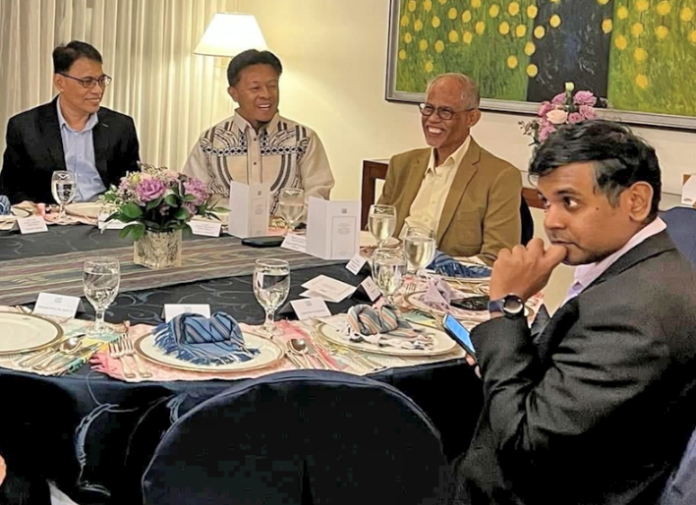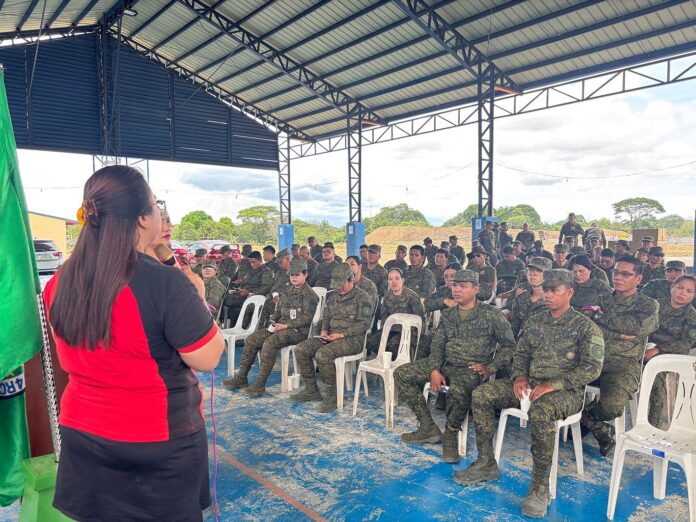For the first time, the National Commission on Muslim Filipinos (NCMF) will undergo a mosque management training program this year through a partnership with the Majlis Ugama Islam Singapura (MUIS), the Islamic Religious Council of Singapore.
“It will be the first formal training the NCMF will have on mosque or masjid management. The Commission thanks the graciousness of MUIS for offering to sponsor the training program,” said NCMF Secretary Sabuddin N. Abdurahim on Monday.
“This partnership demonstrates the oneness of the ASEAN (Association of Southeast Asian Nations) community, especially with the Philippines and Singapore being among the five founding member countries of ASEAN,” he said.
Under Singapore’s Administration of Muslim Law Act (AMLA), MUIS’s principal functions include building, developing, administering, and managing mosques in Singapore. Currently, there are 71 mosques in the small island state.

Secretary Abdurahim said that the NCMF, through the Department of Social Welfare and Development (DSWD), specifically the Office of Undersecretary for Legislative Affairs Fatima Aliah Q. Dimaporo, will engage with MUIS for the mosque management training program.
“The trainees will be chosen by NCMF, but it will be DSWD that will nominate them to MUIS because the MUIS’s project on community development with the Philippines is through DSWD,” the NCMF Secretary explained.
The NCMF, under Section 11 of Republic Act (RA) No. 9997 or the NCMF Act of 2009, is mandated to be responsible for the conduct of research and studies for the establishment and maintenance of Islamic centers.
According to the registry of the NCMF Bureau of Muslim Cultural Affairs (BMCA) as of April 2025, there are 2,028 mosques or cultural centers in the Philippines. Lanao del Sur has the most with 651, followed by South Luzon with 255, and next by the National Capital Region with 177.
Secretary Abdurahim said that the anticipated collaboration is the fruition of the recent visit of NCMF delegates to MUIS this month, which included a visit to Masjid Hasanah.
The delegation explored two of Masjid Hasanah’s flagship initiatives: the community pantry, providing grocery support to those in need, regardless of race, religion, or nationality; and the elderly common space, a warm, inclusive, and safe space for seniors to relax, bond, and attend enriching classes.
Caring for Muslim converts
The NCMF Secretary said that the Commission will also partner with the Muslim Converts Association of Singapore (MCAS), also known as Darul Arqam Singapore, a non-profit charitable organization appointed by MUIS in August 2005 as a one-stop center for conversion.
He said that the NCMF and MCAS agreed that the NCMF Bureau of External Relations (BER) would recognize the MCAS-issued Conversion Card by issuing an NCMF Certificate of Conversion to Islam upon presentation of the MCAS Conversion Card.
Also, NCMF will adopt the MCAS conversion form, which states the consent and instructions to the family of the deceased Muslim convert to undergo Islamic burial rites upon death.
“It is timely as the RA 12160, known as the Philippine Islamic Burial Act, was recently enacted into law. It recognizes Muslim Filipinos’ customs and beliefs to bury the dead within 24 hours or as soon as possible. The new law penalizes withholding a Muslim cadaver due to non-payment of hospital bills or funeral parlor fees,” he said.
“The Commission commends President Ferdinand Marcos, Jr. and Senator Robinhood Padilla for meaningful legislation,” he added.
Further, Secretary Abdurahim assured that the NCMF will catalyze programs for the Balik-Islam or convert sector and lauds Senator Padilla’s Senate Bill 2819 proposing the addition of a Commissioner in the NCMF for the Balik-Islam sector.
Singapore as a model
Secretary Abdurahim said that Singapore is an excellent model of inclusive governance. He praised the Singapore Prison Service (SPS) for its culturally-nuanced approach in managing Muslim inmates.
During the NCMF delegation’s meeting with SPS on April 7, 2025, the SPS said that there are 70 Filipino inmates in SPS facilities as of 2024, with two of them Muslim Filipinos.
According to SPS Deputy Commissioner for Prisons for Policy and Transformation Rockey Francisco, Jr., the SPS adopted a Halal or no pork diet in the early 2000s.
The SPS practices a throughcare approach to inmates’ rehabilitation and reintegration. It means that inmates receive incare (in prison) and aftercare (in the community) after their incarceration.
“The NCMF eyes partnering with the Bureau of Jail Management and Penology, Bureau of Corrections, Parole and Probation Administration, Juvenile and Justice Welfare Council, and other stakeholders of the Philippine correctional system in adopting the Singapore’s best practices for managing Muslim persons deprived of liberty (PDLs),” said Secretary Abdurahim.








